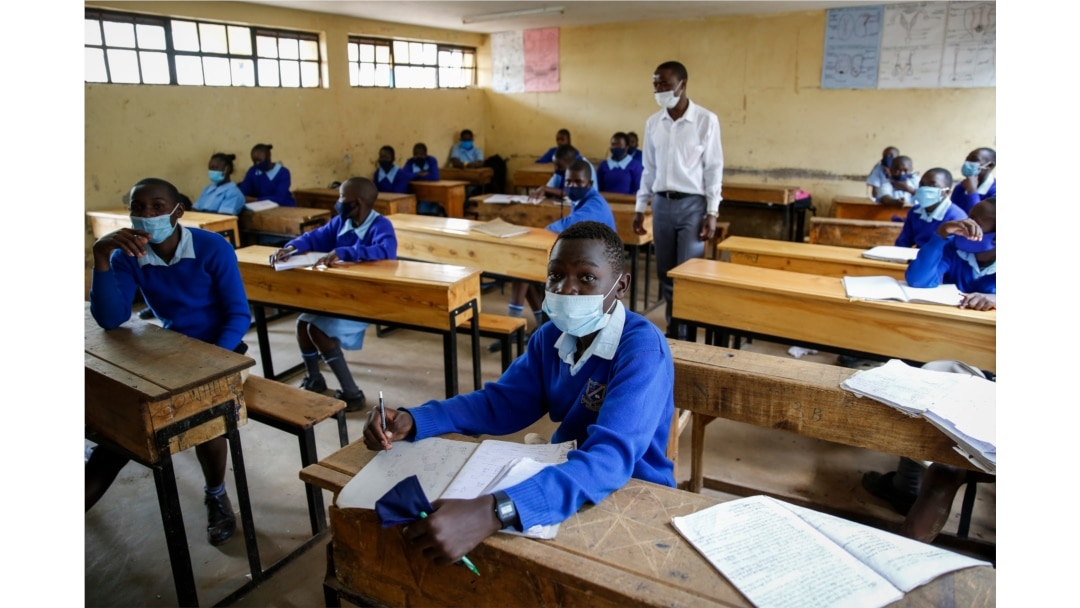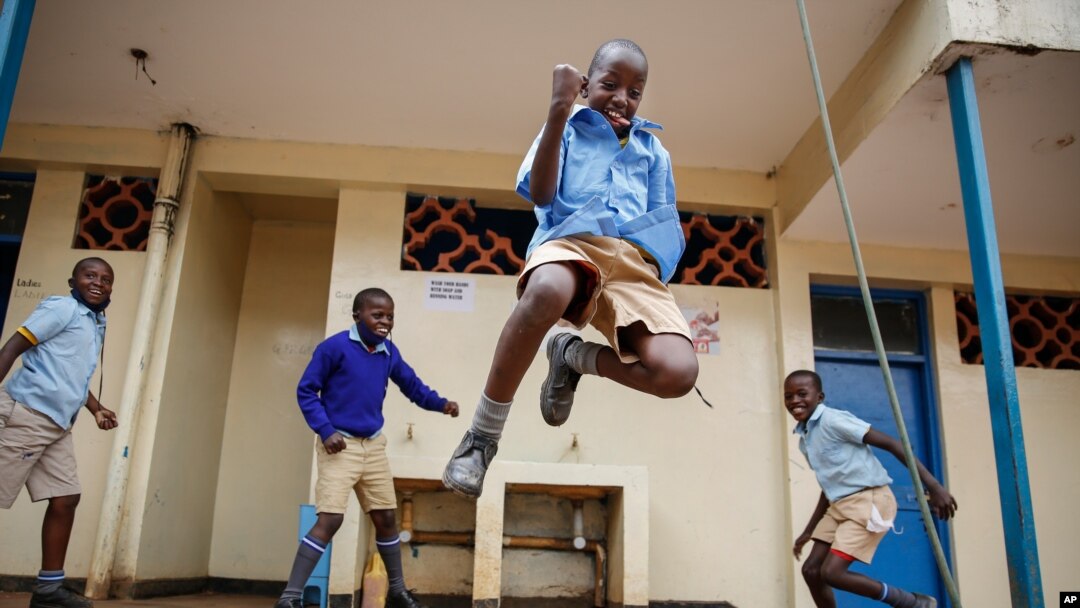Kenya’s plan to open primary and secondary schools next week is getting resistance from the leading teachers’ association, which says the schools are not well prepared to follow health protocols to prevent the spread of coronavirus. They say the schools need at least double the space they had before COVID-19 to keep children safe.
Some 16 million Kenyan children are expected to begin classes Monday after being out of school for nearly 10 months due to COVID-19 pandemic.
Nicholas Gathemia is the chairman of Kenya Primary Schools Head Teachers Association. He says schools will find it difficult to follow the health protocols meant to fight the coronavirus.
“The facilities we have are not adequate, they are inadequate to maintain the issue of social distance," Gathemia said. "We need three or four times the number of classes we have. Right now, we are facing challenges with grade 4 and grade 8 and I think if the rest of the school turns up it will be a big challenge.”
SEE ALSO: Kenyan Union Says COVID-19 in Schools Putting Teachers at RiskIn October, Kenya reopened schools for students in grades 4, 8 and 12. The students in those grades are preparing for final exams. With the limited number of students, schools were able to spread out the classes to keep learners safe from the virus.
Inspecting schools in Kisumu county Monday, Education Minister George Magoha said the government will disperse $190 million to schools to make sure learning continues after a 10-month closure due to the COVID-19 pandemic.
“Please use the money for the purposes it’s meant,” said Magoha. "This is not the time for anything else. We shall follow by doing due diligence, in the past we allowed anybody just to spend the money without due diligence, starting January 2021 that shall be our policy.”
However, Gathemia says the $40 million being given to primary schools is not enough.“That’s normal capitation it has always been inadequate to maintain a school. For example, in primary school annually we get 668 shillings ($6.13) per child, talk of 50 percent you may get 300 shillings ($2.75) this term and that 300 will be for subordinate staff and it's for all that work needed in school,” said Gathemia. "It's actually very little.”

Schoolchildren attend class at the Olympic Primary School in Kibera, one of the capital Nairobi's poorest areas, in Kenya, Oct. 12, 2020.
Kenyan schools will be required to do more - provide clean water for washing hands, hand sanitizers and face masks to keep children safe in the learning institutions.
Tomkins Baraza is a high school teacher and comments on education issues. He says opening schools provides both opportunities and a challenge for students.
“We shall have very few indiscipline cases, indiscipline cases will reduce, (for) example, drug abuses, pregnancies as many learners will be in schools where we have rules and regulations and a lot of guidance and counseling from teachers… then the teachers will also have a great challenge whereby they will be dealing with many learners and you might find that some of those learners might come with this pandemic to school and spread to others,” said Baraza.
Since the partial re-opening of schools in October, 35 schools have reported positive coronavirus cases and at least two teachers died of the virus.


